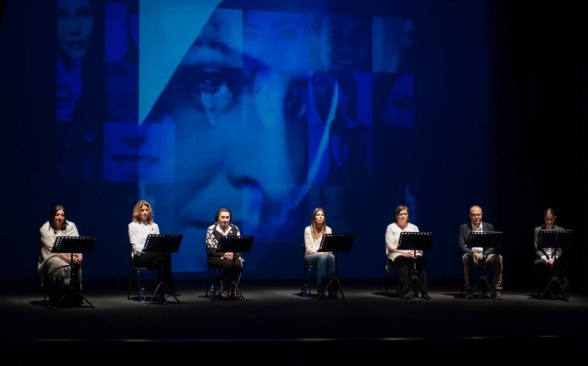The stories were read by persons from the public life of Montenegro: Ms Nada Drobnjak, Chairperson of the Gender Equality Committee, Ms Jelisava Kalezić, member of the Gender Equality Committee of the Parliament of Montenegro, Ms Maja Raičević, Director of the Women's Rights Centre, Ms Tea Gorjanc-Prelević, Director of the Human Rights Action, Ms Fatima Naza, activist of the Centre for Roma Initiative, Ms Marija Vujović-Vukčević, super-model and Mr Miroslav Minić, teacher of Montenegrin language and literature in Grammar School “Petar I Petrović Njegoš” in Danilovgrad.
All of them, by their participation in the project “Seven” gave support to a basic idea – that violence against women is unacceptable and that it should be considered a political issue.
The play was directed by Mr Danilo Marunović.
Seven is a unique way for raising awareness on global and everlasting issue of women's rights.
Awarded Swedish screenwriter, actress and director Ms Hedda Krausz Sjögren in 2008 initiated the innovative concept of the production-tour of the play Seven in Sweden, later taken over by the National Touring Theatre “Seven” in Sweden.
The play “Seven” has been performed in 28 states so far and it was seen by 30.000 people in more than 30 countries. Speaking her text, over 600 of public figres entered the stage, in order to lend voice to these marginalised women. The universality of this theme makes each individual performance equally impressive.









